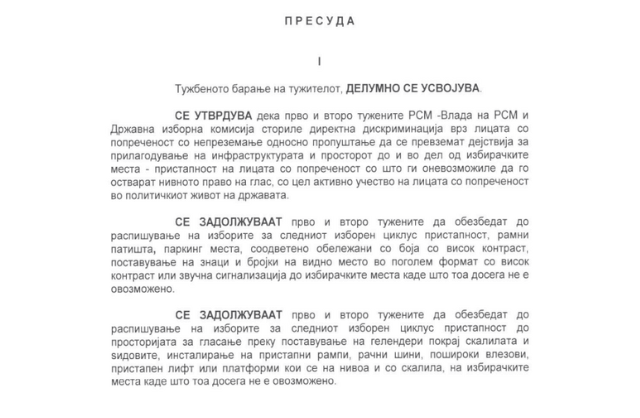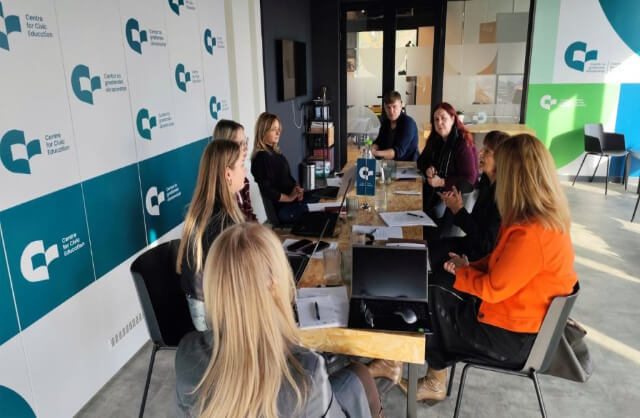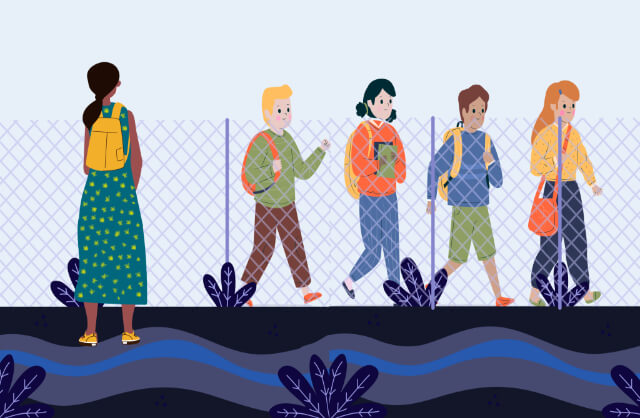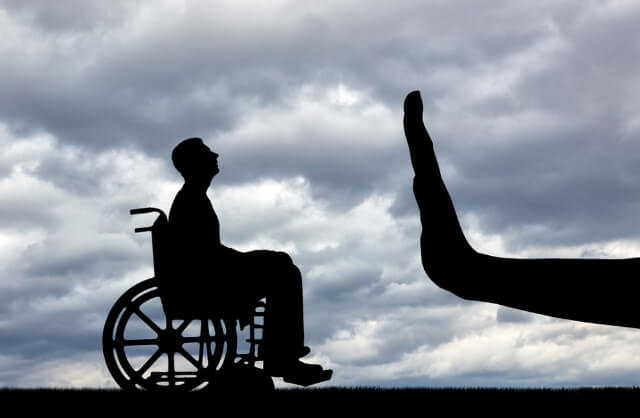The Government and the State Election Commission directly discriminated against persons with disabilities when exercising their right to vote
September 1, 2022

The Basic Civil Court in Skopje held that there had been a direct discrimination against persons with disabilities in exercising their right to vote, by the Government of the Republic of North Macedonia and the State Election Commission (SEC). The Court found that they directly discriminated by omission, i.e., failing to act and undertake appropriate measures to ensure that persons with disabilities have access, on equal basis with others, to the infrastructure, as well as to and in the polling stations, thus violating the principle of reasonable accommodation. This resulted in preventing and restricting persons with disabilities to enjoy and exercise their right to vote, and their right to actively participate in the political and public life in the country.
The Court obliged the Government and the SEC to enable:
- access to flat roads, parking spaces properly marked with high-contrast color; placement of signs and numbers in a prominent place in a large format with high contrast or sound signaling to the polling stations;
- access to the polling stations by installing handrails along the stairs and walls; to install access ramps, handrails, wider entrances, to provide an accessible elevator or platforms on proper level and with steps;
- access in the polling station, its equal lighting, redistribution of furniture in order to enable greater possibility of movement; installation of properly adapted voting screens and installation of the ballot box at an appropriate height for persons with physical disabilities.
Additionally, the Court imposed an obligation for the Government and the SEC to publish in the media and in an appropriate format, the summary of the judgment which establishes that they committed directly discriminated against persons with disabilities in exercising their right to vote, no later than 15 days after the entry into force of this judgment.
The Helsinki Committee for Human Rights filed the action for protection against discrimination of public interest (actio popularis) on February 1, 2021 and in the court proceedings was represented by the Lawyer Pavlina Zefikj. The court procedure was conducted with the financial support of the OSCE Mission to Skopje, as part of the implementation of the project “Supporting North Macedonia in advancing Rule of Law and Human Rights” in 2020.
Action for Protection against Discrimination of Public Interest (actio popularis)
One of the crucial novelties in the new Law on Prevention and Protection against Discrimination (LPPD) was the introduction of the action for protection against discrimination of public interest (actio popularis) – Article 35. Under this provision, civic society organizations which pursue a justified interest in the protection of the interests of a particular group or within their activity they also deal with protection against discrimination, may file a lawsuit, if they render it plausible that the conduct of the plaintiff led to the discrimination of a large number of people. The Helsinki Committee proved its active legitimation for filing this action.
Discrimination against persons with disabilities in exercising their right to vote and violation of the principle of reasonable accommodation
After thorough analysis and researches in the polling stations, the Helsinki Committee claimed several violations on the side of the defendants including that some of the polling stations do not have available and accessible parking space, only a small part of those polling stations with available parking have a sign for persons with disabilities, an insignificant number of facilities have a universal sign for accessibility and an accessible ramp, in the majority of the voting stations there are no stairs to reach the polling room and most of the facilities do not have an elevator;[1] persons with disabilities do not have access to information about political debates, campaigns and events, the Guidelines for the application of Article 112-a (Voting of a voter – person with special needs) of the Electoral Code does not contain the principles of reasonable accommodation and universal design, the SEC provides a medical model of defining the persons it treats as sick and infirm, and in this categorization it also includes persons with sensory disabilities;[2] restriction of persons with intellectual and psycho-social disabilities to exercise their active and passive right to vote, unavailability of election materials and information in an accessible format for all persons with disabilities; irregular trainings for public and private actors on non-discrimination and on reasonable accommodation, based on the human rights approach instead of the traditional medical model.[3]
The Basic Civil Court in Skopje held that the Government and the State Election Commission directly discriminated against persons with disabilities, i.e., that they violated the principles of reasonable accommodation and the access to infrastructure, goods and services.
The Court found that persons with disabilities should not in any way be identified with sick and infirm people, who due to their health condition are unable to physically access the polling stations, and they are allowed to vote at home. Thus, the Court stated that the Government and the SEC should enable persons with disabilities equal and reasonably accommodated access to the polling stations, according to the Electoral Code.
Burden of proof
The Court clearly stated that, after shifting the burden of proof to the defendants, they did not propose or submit appropriate evidence which prove that there was no discrimination committed against persons with disabilities (after the recommendations given in the analysis and researches by 2019) and they undertook all necessary measures in the polling stations making them accessible for persons with disabilities and in accordance to the principle of reasonable accommodation.
Additionally, the Court found that in a democratic society it is of utmost importance for the state to protect, and to enable enjoying and exercising the right to vote of persons with disabilities. The Court continues by stating that making the polling stations accessible according to the needs of persons with disabilities does not cause disproportionate or undue burden, considering that this issue concerns only some but not all polling stations.
Third party participation
According to the LPPD, on request by the party or on its own initiative the Commission for Prevention and Protection of Discrimination (CPPD) may request the court to allow to act as a friend of the court (amicus curiae). Considering this competence of the Commission, the Helsinki Committee requested the Commission, directly after its establishment, to participate in the procedure following the public interest lawsuit. In April 2021, the CPPD addressed the Basic Civil Court in Skopje and requested it to accept their involvement in the process as a friend of the court by submitting an amicus curiae brief. Amicus curiae or a friend of the court is a professional person, organization or body that is not a party in the court proceedings, but with its expertise, experience and information in a certain area can advise the court on a certain legal matter, which is a subject of court proceedings.
As a professional and equality body, the Commission submitted an amicus curiae which included legal interpretation of articles from the United Nations International Convention on the Rights of Persons with Disabilities relating to reasonable accommodation, accessibility, equality and non-discrimination – in relation to polling stations and enabling persons with disabilities to exercise their right to vote on an equal basis with others, as part of participation of the persons with disabilities in the political and public life. In this same submission, the Commission also provided a brief overview of the case law of the European Court of Human Rights, cases in which the court established discrimination on the grounds of disability due to the lack of reasonable accommodation.
Another third party participant in the court proceedings was the Coalition MARGINS from Skopje, represented by the lawyer Natasha Boshkova. The Coalition is both a member and the lead party of the Network for Protection against Discrimination and it advocates for changes and advancement of the anti-discrimination legislation in the country, it provides free legal aid and strategic litigation in cases of discrimination, including for victims of discrimination on the grounds of disabilities. Considering the mandate of the organization, the Court allowed their request to participate as a co-party in the court proceedings on the side of the applicant.
Amendments of legislation
The Basic Civil Court decided that our request to impose an obligation for the defendants to amend the legislation, was unfounded, since the adoption and amendments of legislation is a competence of other legislative and executive branches of power, and they cannot be a subject of decision by the courts in civil proceedings.
However, the Court indicated that the competencies lies with the Government and the SEC to enable the enjoyment and exercising of the right to vote of persons with disabilities on equal basis with others, by implementing a systemic approach for proposing the adoption of new and amendments to existing laws, by providing sufficient funds for implementation of the laws and by introducing a system for collecting segregated data by each competent authority, consistently respecting the positive obligations for the state arising from all international and domestic legal instruments.
[1] Report on auditing and assessing the polling station accessibility for people with different abilities on the territory of the country. State Election Commission, the International Foundation for Electoral Systems, OSCE Mission to Skopje, 2017.
[2] Analysis of the Political Participation of Persons with Disabilities. Elena Kocoska, supported by the OSCE Mission to Skopje, 2017.
[3] UN Committee on the Rights of Persons with Disabilities’ Recommendations to North Macedonia, 2018.


